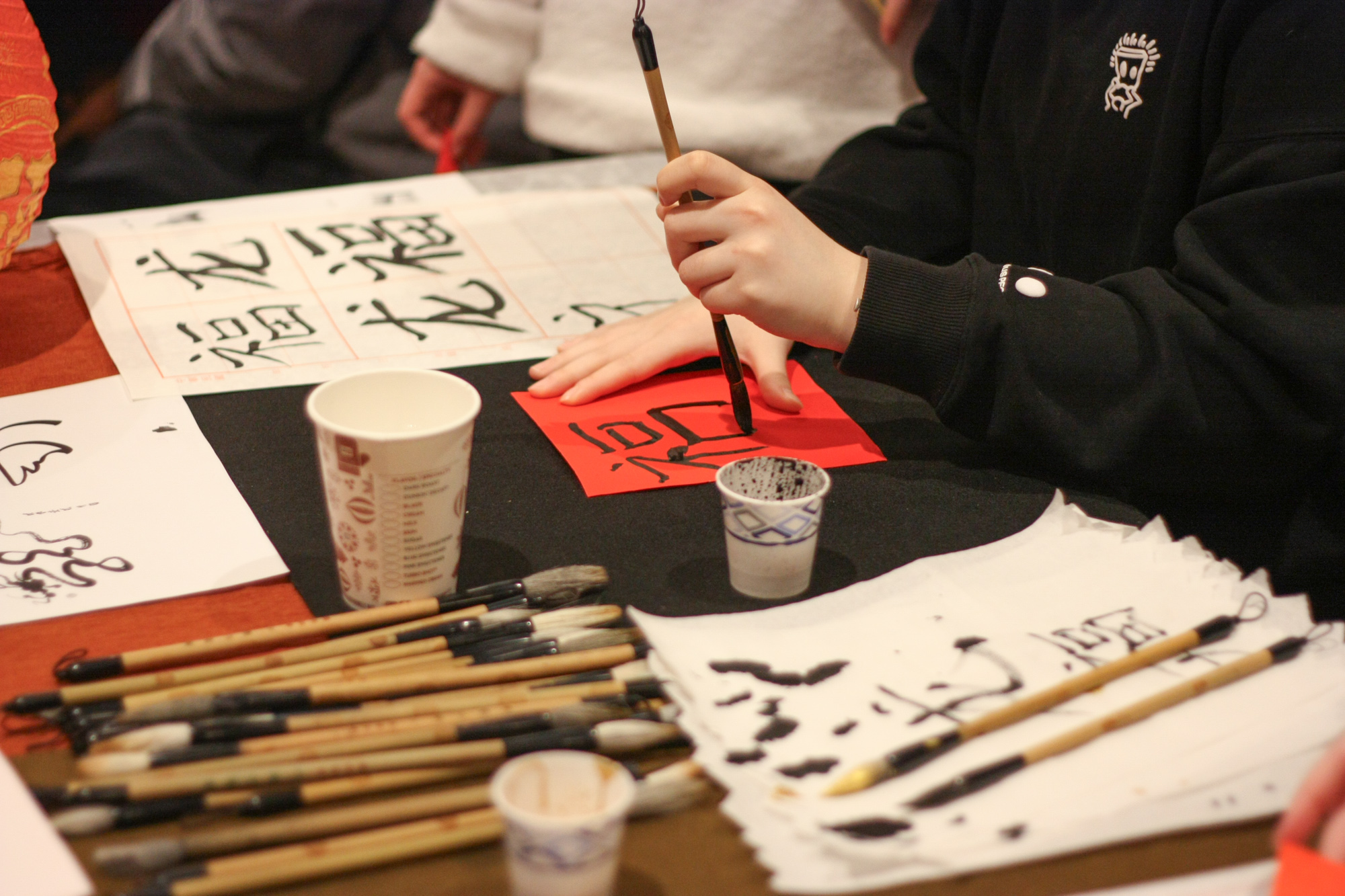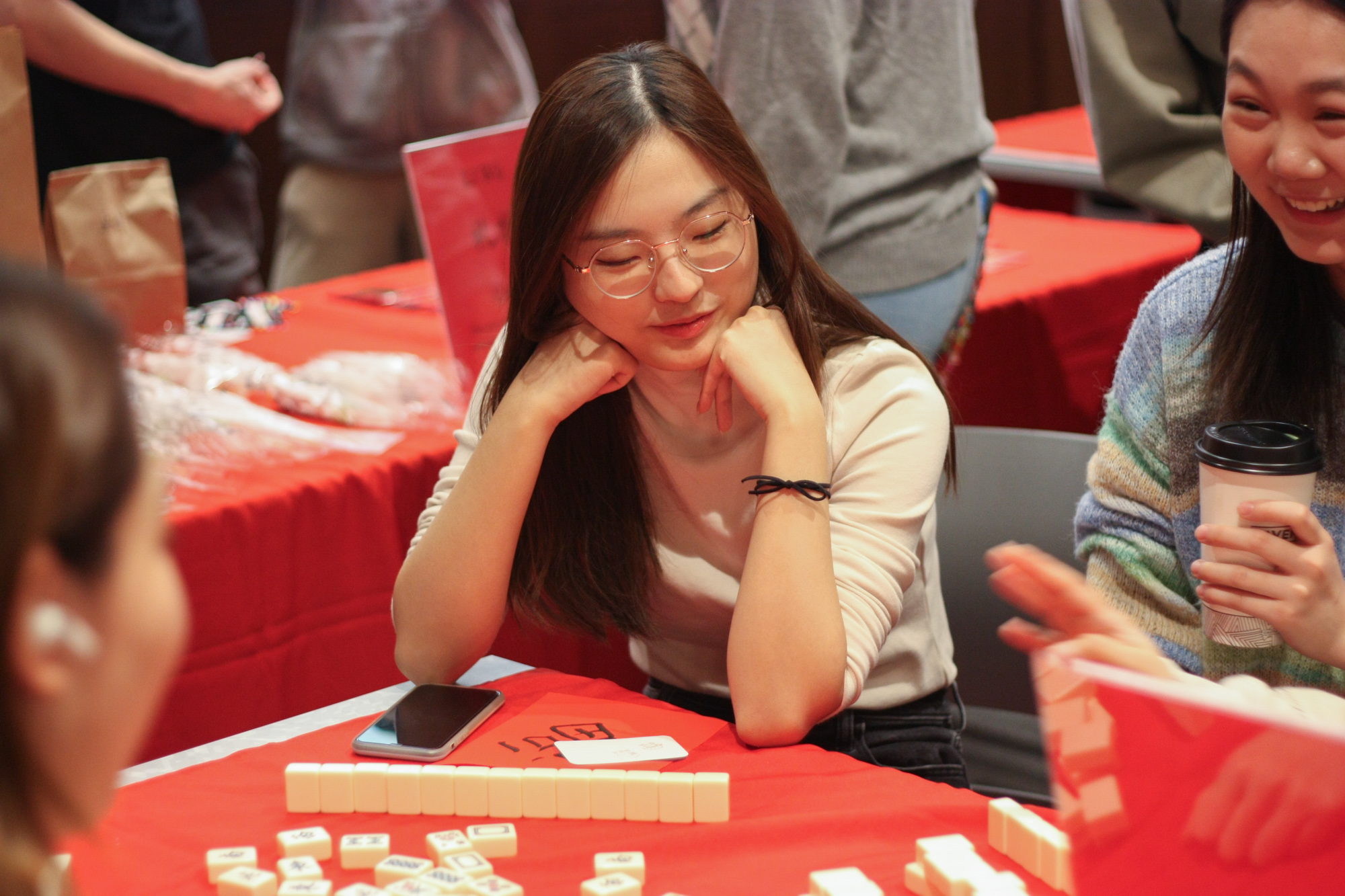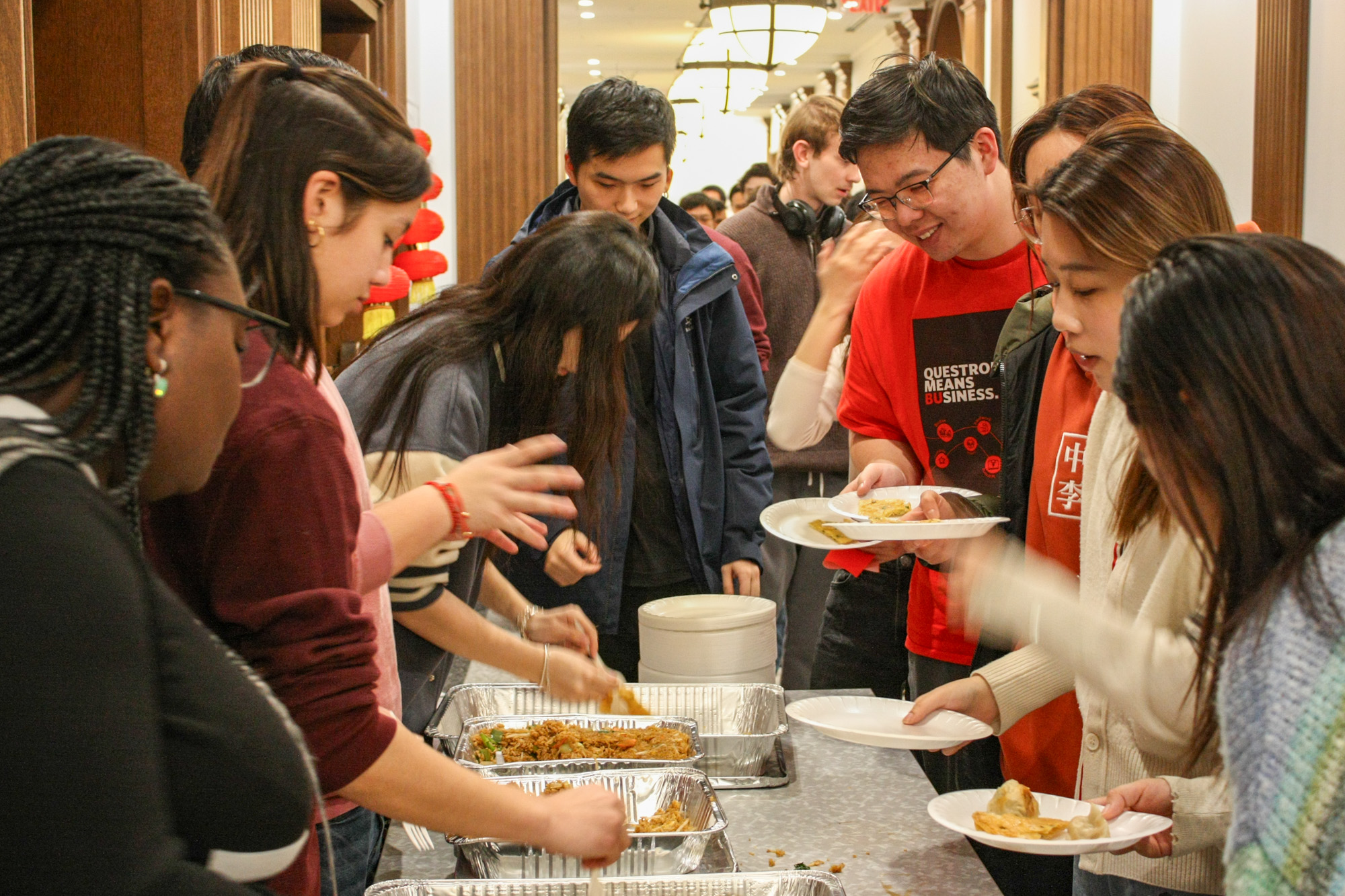With lanterns, dumplings, red envelopes and Mahjong, Boston University students celebrated the Lunar New Year in a community away from home.
Lunar New Year marks the start of a new year on the lunisolar calendar and is the most important holiday in China. The first day of the new year fell on Feb. 10, and the 15-day celebration will extend through Feb. 24.
BU student organizations and departments hosted festivities to ring in the Year of the Dragon, inviting community members — whether they traditionally celebrate the holiday or not — to celebrate.

To kick off the new year, the Chinese Student Association, or CSA, held their annual Lunar New Year Gala in the Metcalf Ballroom on Feb. 10.
CSA President William Jiang said the CSA aimed to incorporate traditional Lunar New Year cultural traditions, including lanterns and the color red, which symbolizes good luck and happiness, among other positive meanings.
He said that the CSA also drew inspiration from “Chunwan,” or the Spring Festival Gala, a special event televised on the eve of Lunar New Year. “Chunwan” features performances, comedy skits and, more recently, interactive audience experiences.
“[Chunwan has] a bunch of food, a bunch of performances,” said Jiang, a senior in Sargent College of Health and Rehabilitation Sciences. “That’s the style we tried to follow.”
The CSA’s gala featured cultural performances by groups like the Boston Beijing Opera Association, BU Kung Fu Club and Verge Dance Company.
Heather Li, a junior in the College of Fine Arts and the College of Engineering, performed at the gala with Verge, a student dance group that specializes in classical Chinese choreography.
“In general, Chinese dance, with the classical and ethnic styles, there’s a lot of story that gets passed along,” said Li, one of Verge’s co-presidents. She added that performing at the Lunar New Year Gala is a way to spread parts of her culture to the BU community.
This year marked the second Lunar New Year Gala for Sydney Wu, a sophomore in College of Arts and Sciences, who said that the gala is “a good way to get together and acknowledge Lunar New Year.”
Wu said she feels that the holiday is not discussed much outside of the Asian community.
“Especially because such a large part of the BU student population is Asian, I think [Lunar New Year] should be bigger,” Wu said.
Despite posters around campus promoting Lunar New Year events, Jiang said that more recognition of the holiday higher up in the university “would definitely help [to] inform people more or put it on people’s radars more.”
BU’s Taiwanese Overseas Student Association (TOSA) held a Lunar New Year potluck on the evening of Feb. 10 at the George Sherman Union. Attendees brought dishes to share with others and engaged in activities including Mahjong and crafting the Spring Festival couplets.
This year’s potluck was the first time TOSA has held an event to celebrate the new year, said Jo-Wei Lin, a junior in the College of Communication and one of the co-presidents of TOSA.
Lin, an international student from Taiwan, said the past three Lunar New Years have been a very different experience since she’s been away from home.
“The happiness level is kind of the same, but you know, family is still family,” Lin said about the event.

On Friday, the BU Chinese Program and Global House co-hosted the Lunar New Year Culture Fair at Myles Standish Hall. The event featured six different cultural booths, including paper cutting, calligraphy and opera mask painting.
Yating Fan, a lecturer in the Department of World Languages and Literatures who organized the culture fair, teaches an intermediate Chinese course this semester. She said that when she talked about Lunar New Year in her class, she discovered that most of her students had never celebrated it.
“Of course we introduce some culture in classes, but we focus on the language use,” Fan said.
She said she saw the fair as an opportunity not only to celebrate with students, but to introduce the cultural activities of “the biggest event in Chinese culture.”
Salma Alali, a senior in CAS who attended the culture fair, said the event was interesting because she could be more immersed in Chinese culture.
“I think one of the main reasons we are learning languages is to bridge the gap between two different cultures,” Alali said. “I don’t personally celebrate Lunar New Year, but other people do, and this is a nice way to get together and experience that.”
Julianne Vaughan, a junior in CAS who grew up in Taiwan, said that “the essence of Lunar New Year is being with family.”
In the past few years Vaughan has been away from family for the holiday, she has spent it with her friends — those who celebrate and those who do not. She compared sharing Lunar New Year with people who do not celebrate the holiday to how Thanksgiving is for international students: “It’s a moment of connection and sharing that doesn’t feel forced.”
“Now, in college, Lunar New Year feels more like a day of spreading joy,” Vaughan said.















































































































